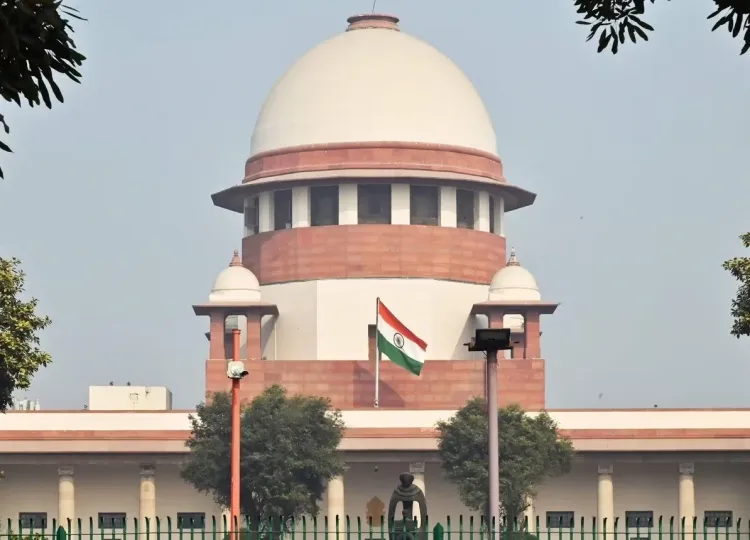Did the SC Reject KAL Airways and Maran's Request for Rs 1,300 Crore from SpiceJet?

Synopsis
Key Takeaways
- The Supreme Court upheld the dismissal of KAL Airways and Maran's petitions.
- The case emphasizes the necessity of timely legal action.
- Corporate agreements must be adhered to for legal recourse.
- The arbitration tribunal's decision favored SpiceJet.
- This ruling may set a precedent for similar aviation disputes.
New Delhi, July 23 (NationPress) On Wednesday, the Supreme Court dismissed the special leave petitions submitted by KAL Airways and businessman Kalanithi Maran seeking compensation exceeding Rs 1,300 crore from the Ajay Singh-led SpiceJet.
A bench comprising Justices P.S. Narasimha and A.S. Chandurkar chose not to intervene with a previous ruling from the division bench of the Delhi High Court, which had rejected the appeals lodged by KAL Airways and Maran on the basis of delay, without addressing the merits of the case.
Ajay Singh initially sold SpiceJet to Maran and later reacquired the airline in January 2015, after it had faced a lengthy grounding due to financial challenges.
Maran, associated with Sun Network, along with KAL Airways, had transferred their 58.46 percent stake in SpiceJet to Ajay Singh for only Rs 2, along with a substantial debt liability of Rs 1,500 crore.
They claimed to have paid SpiceJet Rs 679 crore for the issuance of warrants and preference shares as part of their agreement.
However, Maran approached the Delhi High Court in 2017, alleging that SpiceJet failed to issue the convertible warrants and preference shares, nor did they return the funds.
The matter was sent to arbitration, where a tribunal of three former apex court judges dismissed Maran's demand for Rs 1,323 crore in damages from SpiceJet.
The tribunal determined that Maran owed Ajay Singh and SpiceJet Rs 29 crore in penal interest, while Ajay Singh was directed to repay Maran Rs 579 crore plus interest. It was also concluded that there was no breach of the share sale and purchase agreement between Maran and Ajay Singh.
Both parties contested the arbitral ruling in the Delhi High Court. In 2024, a division bench reversed a single bench's endorsement of the arbitral decision and sent the case back for new assessment.
Subsequently, Maran and KAL Airways sought to revive their appeal for damages exceeding Rs 1,300 crore, which the Delhi High Court dismissed due to delay, a stance now upheld by the Supreme Court.










